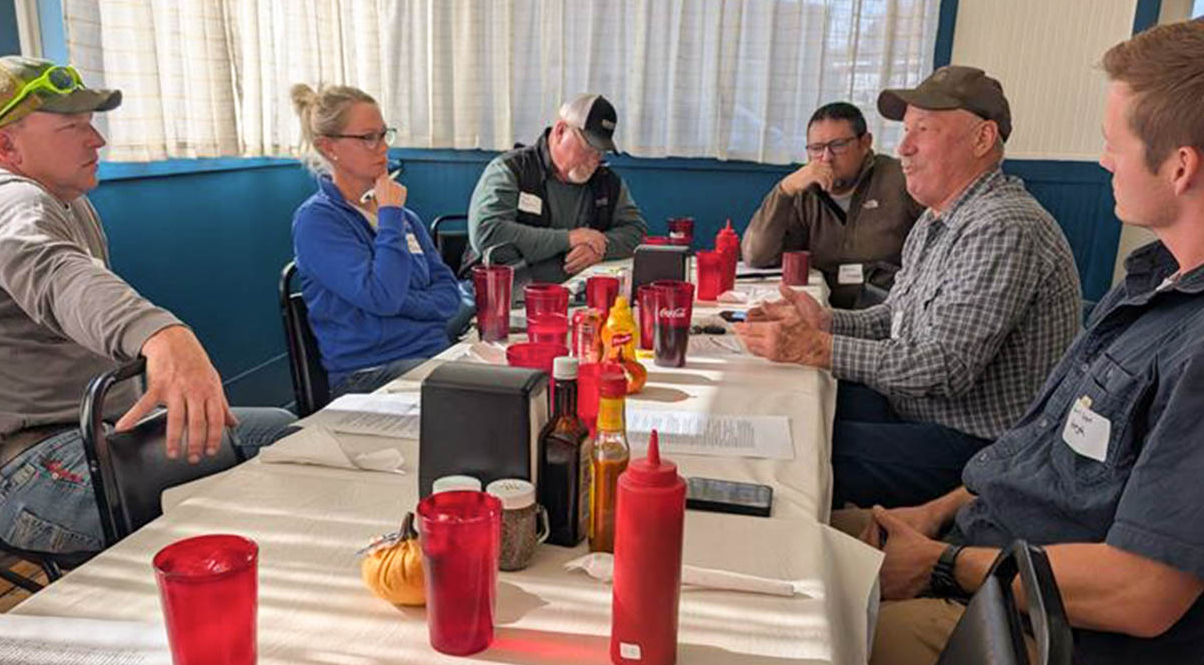ANKENY, Iowa – The Iowa Soybean Association (ISA) policy roundtables across Iowa this month have been full of excitement, marked by the open dialogue and camaraderie that comes from getting off the farm and talking face-to-face about real challenges.
Katie Hall, senior director of advocacy at ISA, says the aim of this year's Policy Roundtables was to hear from as many farmers as possible.
“Farmer voices are powerful. I want to talk to everyone. I want to hear what everyone thinks,” Hall says. “We all see things differently and diversity is really important in terms of political conversations.”
After the roundtable, Joe Sperfslage, director of ISA District 6, was impressed by how open the conversation was and how committed the ISA staff was to improving the policy process.
“The political meeting was very transparent. All opinions were welcomed, listened to and respected,” he says.
Farmers' priorities
During the policy discussions, farmers raised concerns on a variety of issues, including property rights, high input prices, the MAHA movement, property taxes, domestic demand and more.
For Sperfslage, unprofitable soybean prices, high seed costs and the need to expand domestic soybean consumption were at the heart of the discussion and said the roundtable provided an important opportunity to raise these concerns.
“Obviously the bean markets are not favorable for most producers, probably below their break-even production costs,” he says.
However, when it comes to policy priorities, he shared that market pressures are only part of the challenge.
“Farmers in the United States should not pay more for seeds than farmers in Brazil,” he says. “And I would like to see policies that promote agricultural production in the United States. And that means domestic production of inputs.”
During the roundtable, Sperfslage also emphasized that increasing domestic demand for soy is critical because tariffs are not the only issue currently impacting a farmer's bottom line.
“Ultimately this is a Brazilian problem. Tariffs certainly don't help, but in reality tariffs were just icing on an already baked cake,” he says. “There is a supply problem in the world. There are a lot of beans and we have to respond to the demand.”
Shaping politics
Farmers who become ISA Advocate members help ensure their voices are heard at the Capitol. Hall says it's her chance to help shape the advocacy team's policy direction.
“As we have seen in recent years, politics and advocacy have become increasingly important. By working with the ISA Advocacy team, discussing issues and finding solutions, we can make a difference for farmers and our rural communities,” says Hall. “We recognize that we are in a challenging time, but we are resilient; we can think differently about how we can support and create markets. People are seeing the value in engaging in policy conversations and the discussions at these roundtables have been really intense.”
Next Steps
All input collected at the nine district meetings is summarized in the policy document with recommendations for the ISA Resolution Committee.
“The committee then reviews the proposals before moving on to the December political session, where all delegates discuss the changes and vote on the resolutions,” Hall says.
Grab it
Hall welcomes feedback from members and encourages them to get in touch.
“We're here – this is what we do. We represent our farmers,” Hall said. “There is no such thing as delayed feedback. I want to know what issues are at the forefront so we can find solutions. Chances are, you are not alone in this challenge.”
Further information about becoming a member of ISA Advocate and contacting the ISA Advocacy team can be found here.
–Kriss Nelson, Iowa Soybean Association
